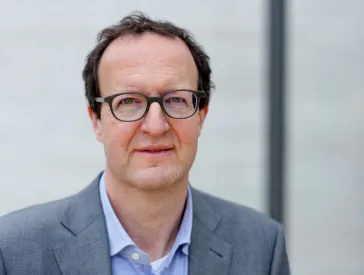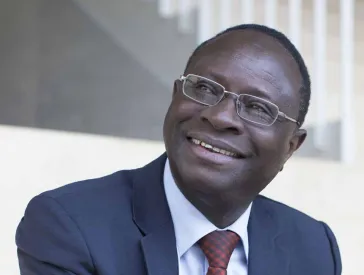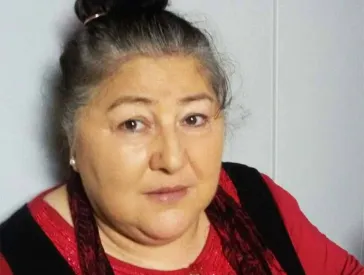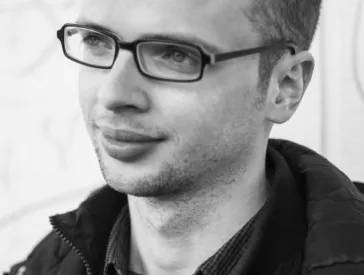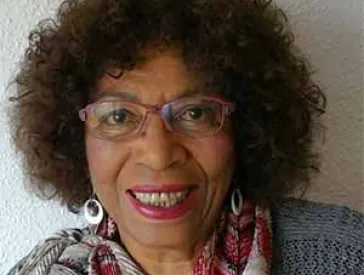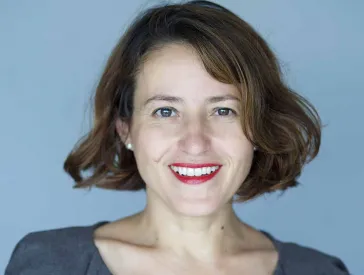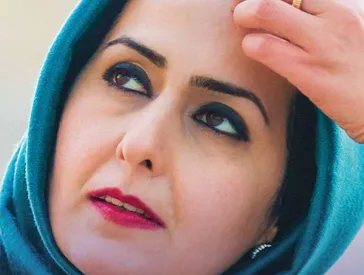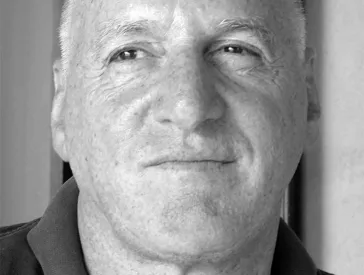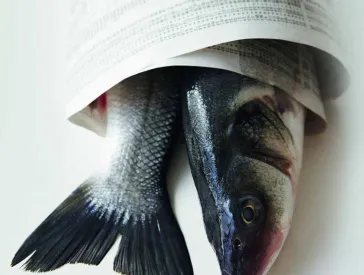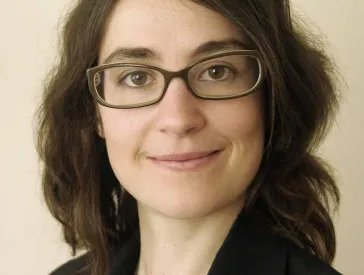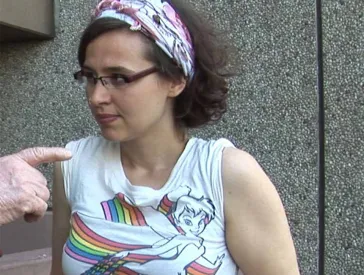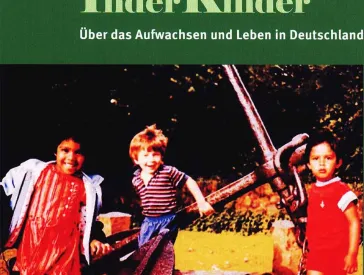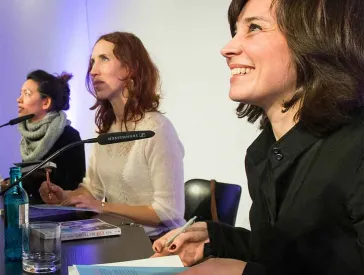“New German Stories”
Three Questions to Alice Bota, Khuê Pham and Özlem Topçu
Yasemin Shooman
In January 2014 Alice Bota, Khuê Pham and Özlem Topçu presented their book Wir neuen Deutschen. Wer wir sind, was wir wollen (We, the New Germans: Who We Are and What We Want) at the Academy of the Jewish Museum Berlin. The three women, all journalists for the newspaper DIE ZEIT, discussed with one hundred guests what it means to be German in the 21st century.
Before the event Yasemin Shooman asked the authors three questions:
What inspired you to write this book?
We three are colleagues. We are political editors. And we are children of foreigners. But we find that despite being quite different, we share an outrage at those who would like to tell us who we are. By writing this book, we wanted to voice our concern, claim our identities and share our families’ stories. We wanted to demonstrate that immigrants’ stories are not necessarily about failure, and that broken and mixed family histories can in fact lead to personal success.
Alice Bota; Jewish Museum Berlin, photo: Svea Pietschmann
Published in 2012, the book received positive reviews and considerable attention. Anna Reimann, for instance, summed up the book for SPIEGEL ONLINE, arguing: “We, the New Germans shows that the authors’ ‘hybrid identity’ – which is how they describe their experience between two countries – may, at times, make life more difficult, but also drives them to reflect on themselves and on others, to take more of a stance, to have more of an attitude.”
In light of the media’s response, I'm wondering whether you had chosen to leave something out of the book, and if yes, what?
We didn’t want to write another book on immigrants about integration, racism, birth rates, and literacy problems. We wanted to describe a feeling of alienation that’s shaping a young new generation of immigrant children.
Khuê Pham; Jewish Museum Berlin, photo: Svea Pietschmann
The book presentation for We, the New Germans: Who We Are and What We Want was the second event in the series New German Stories of the Academy programs of the Jewish Museum Berlin. Focusing on individual biographies, our series will examine Germany’s history and present-day status as an immigration society. Considering the series’s title, I'd like to know: Why is your story a “new German story”?
Because we grew up here. We’re German. But since our parents are foreigners and large parts of our families live abroad, we represent something else too, something new. So our story is a new German story.
The questions were posed by Yasemin Shooman (Head of the Academy programs fo the Jewish Museum Berlin).
Özlem Topçu; Jewish Museum Berlin, photo: Svea Pietschmann
Citation recommendation:
Yasemin Shooman (2014), “New German Stories”. Three Questions to Alice Bota, Khuê Pham and Özlem Topçu.
URL: www.jmberlin.de/en/node/6459
Interview Series: New German Stories (12)
